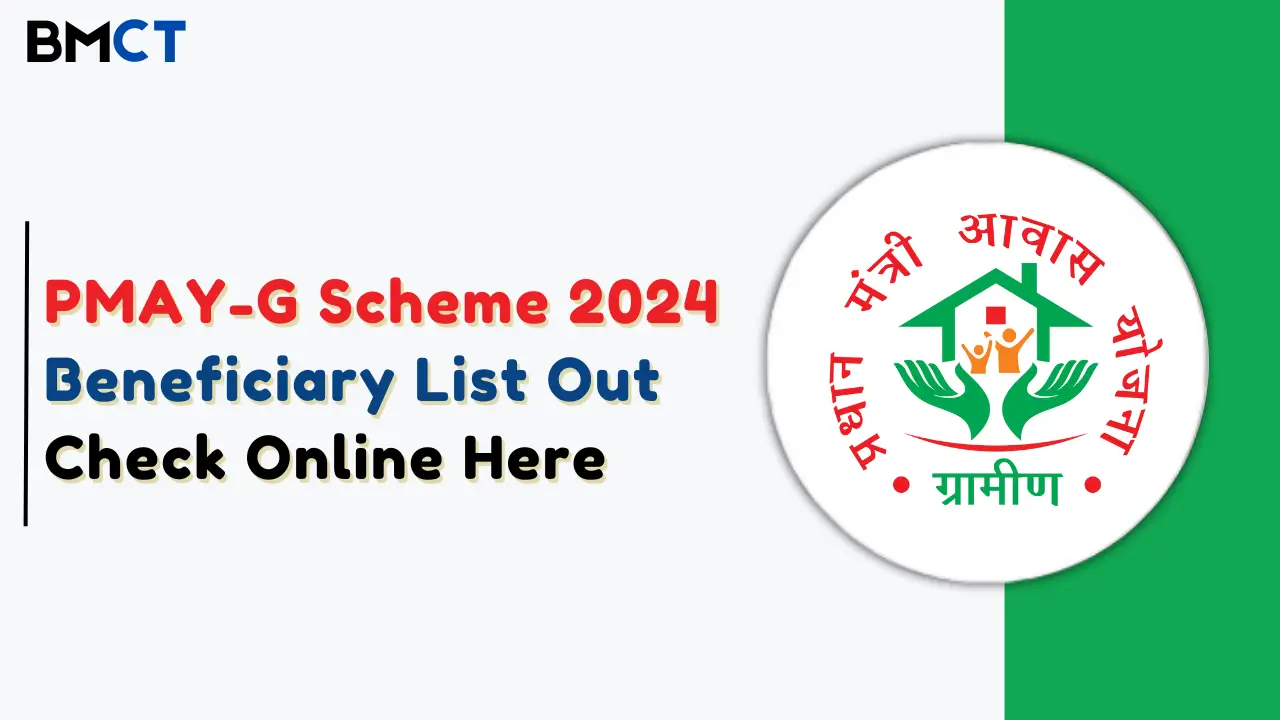The Pradhan Mantri Awas Yojana Gramin (PMAY-G) is a flagship scheme of the Government of India aimed at providing affordable housing to the rural poor. Launched on April 1, 2016, the scheme seeks to ensure that every rural household in India has access to a pucca house with basic amenities by 2024. This article provides a complete detailed version of the PMAY-G beneficiary list, including eligibility criteria, required documents, benefits, application dates, and the application process.
Contents
PMAY-G Beneficiary List 2024

| Scheme Name | Pradhan Mantri Awas Yojana Gramin (PMAY-G) |
| Launched By | Government of India |
| Launch Date | April 1, 2016 |
| Target Year | 2024 |
| Financial Assistance | ₹1.20 lakh in plain areas, ₹1.30 lakh in hilly/difficult areas |
| Official Website | pmayg.nic.in |
Eligibility Criteria
To be eligible for the PMAY-G scheme, applicants must meet the following criteria:
- Households without shelter.
- Households living in zero, one, or two-room kutcha houses.
- Destitute individuals or those living on alms.
- Manual scavengers.
- Primitive Tribal Groups.
- Legally released bonded laborers.
- Households without any literate adult above 25 years.
- Households without any adult male member aged between 16 and 59 years.
- Households with disabled members and no able-bodied adult member.
- Landless households deriving a major part of their income from manual casual labor.
Required Documents
Applicants need to submit the following documents to avail the benefits of the PMAY-G scheme:
- Aadhar Card
- Bank account passbook
- Swachh Bharat Mission (SBM) Gramin registration number
- Mahatma Gandhi National Rural Employment Guarantee Act (MGNREGA) job card
- Consent letter for using Aadhar on behalf of the beneficiary
- Income certificate
- Caste certificate (if applicable)
- Disability certificate (if applicable)
- Proof of residence
Benefits of PMAY-G Scheme
The PMAY-G scheme offers several benefits to the beneficiaries:
- Financial Assistance: Eligible beneficiaries receive financial aid to construct or upgrade their houses. The scheme provides ₹1.20 lakh for plain areas and ₹1.30 lakh for hilly, difficult, and Integrated Action Plan (IAP) areas.
- Basic Amenities: Houses built under PMAY-G come with essential amenities such as a hygienic cooking space, electricity connection, and a toilet facility, enhancing the overall living standards.
- Sustainable Construction: The scheme encourages the use of eco-friendly and sustainable building materials and techniques, promoting environmentally conscious housing solutions.
- Employment Opportunities: Construction activities under PMAY-G generate local employment opportunities, boosting the rural economy.
- Women Empowerment: The scheme promotes women’s empowerment by mandating that the house should be registered in the name of the female head of the household or jointly in the name of both spouses.
- Enhanced Livelihood: By providing secure and stable housing, PMAY-G helps improve the overall livelihood of beneficiaries, contributing to poverty alleviation and social well-being.
Application Dates/Important Dates
- Scheme Launch Date: April 1, 2016
- Target Completion Year: 2024
- Financial Year for Current Beneficiary List: 2024
How To Apply For The PMAY-G Scheme in 2024
- Visit the Official Website: Go to the PMAY-G official website at pmayg.nic.in.
- Select ‘Awaassoft’: From the navigation menu, select ‘Awaassoft’.
- Choose ‘Report’: From the dropdown menu, choose ‘Report’.
- Go to MIS Report Page: You will be redirected to the MIS Report page.
- Enter Details: Fill in the required details such as state, district, block, and village.
- Submit: Click on the ‘Submit’ button to view the beneficiary list.
Important Links
The PMAY-G scheme has significantly impacted rural housing in India. As of July 2024, over 2.55 crore houses have been completed, and more than 2.94 crore houses have been sanctioned to eligible beneficiaries. The scheme not only provides financial assistance for housing but also integrates with other government initiatives like the Swachh Bharat Mission (SBM) and MGNREGA to ensure comprehensive development and upliftment of rural communities.